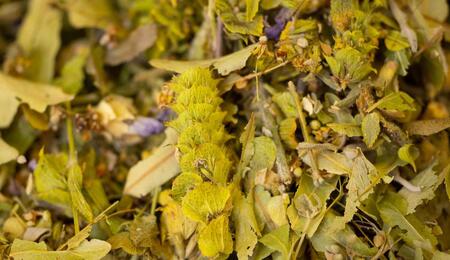Herbal Cigarettes. Yes or No?

You could say that joints are a type of herbal cigarette, but we are not talking about your fat pot rolls here. Herbal cigarettes are a popular alternative for tobacco in several Asian countries such as China, South Korea, Thailand, and Taiwan. Herbal cigarette products have been out on the market since the 1970s. They first appeared in mainland China, then the trend passed overseas to Japan and other countries. Smokable herb blends can have various plant constituents such as rose petals, raspberry leaves, mugwort, peppermint, blue lotus, lavender, etc. The question is: are they safer than tobacco?
There has been limited scientific research done on herbal cigarettes, however, their popularity around the planet is growing. Herbal smokes are in line with the "nature-wellness" era that we live in, and people may quickly think, oh okay, if it's herbal, then it means it's good health. Herbal blends are also marketed to help smokers quit or reduce their smoking habits. Some pot smokers on the other hand are keen on the idea of mixing their weed with something that's nicotine-free.
Tobacco smokers will typically say that they feel more relaxed after a cigarette. Herbal cigarettes can allegedly simulate the same effect, but by using plants considered naturally calming, like chamomile.
Weed smokers who've tried mixing their weed with herbal blends or who pause weed to clean their system from THC and instead use herbal cigarettes, allege that plant blends can offer relief from symptoms such as insomnia, stress, and anxiety.
Some herbal blends are also considered to offer mild physical pain relief while also being used as a meditation tool, deepening the experience and helping to enhance episodes of lucid dreaming.
All of these things do sound great. However, unfortunately, research is lacking to affirm that herbal blends really work in the best interest of your wellbeing. While it's true the absence of nicotine or even THC in a herbal mix can help reduce the risk of addiction or adverse effects on the heart associated with traditional cigarettes and joints, that's just one part of the story!
A good ratio of harmful effects of smoking is caused not by nicotine but by the thousands of other chemical compounds produced in burning plant material that is then present in the smoke. To this end, herbal cigarettes are no different than regular ones. Smoke from specific plants will have particular chemicals unique to those plants, and you can't just assume that those chemicals are harm-free. Or, if some herb is suitable for preparing tea or even using it in food, it doesn't mean it's good for adding it in a mix of herbs and then smoke it.
Doctors oriented in the field of cancer and respiratory diseases are also not convinced that herbal cigarettes are a safer way of smoking.
"The reason people smoke is for the nicotine hit. But you must remember that it is the thousand other chemicals that go along nicotine that cause harm," Dr. Sundeep Salvi, Director of the Chest Research Foundation, Pune, tells The Hindu in a short interview on herbal cigarettes.
"Even if these cigarettes don't contain tobacco, any organic matter (carbon compounds) when smoked, releases black tar, which is very harmful for the lungs," he says.
Of the limited research available on herbal blends, one study from 2007 claims that "herbal-tobacco cigarettes, which incorporate Asian herbs traditionally used for medicinal purposes, make unsubstantiated claims to reduce the harmful health effects associated with tobacco." Another study from 2009 says that "herbal cigarettes are as carcinogenic and addictive as regular cigarettes."
Wellness smoke blends have perhaps improved in the decade since the publication of these two studies, however, it pays to be cautious what you inhale in your lungs. It's important to be aware that inhaling combustion smoke from anything can scar lung tissue. You just don't want to play with stuff that's just not supposed to be inhaled. In case you are trying to quit smoking, ask for help from a physician who may recommend safer tools and methods that can help you reach your goal.



